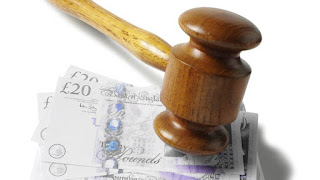A CCJ, or County Court Judgement, might be a hurdle to get a mortgage. Even though brokers and lenders have adjusted their underwriting and use a combination of criteria to assess each application, having bad credit or a CCJ is not necessarily a good sign.
What is a CCJ?
First of all, let’s make things clear about what a County Court Judgement is. It is issued if you owe money to someone and fail to repay them and the usual recovery methods have been unsuccessful (letters, late payment notices…) or simply ignored.
Your creditor can apply for a CCJ against you, especially if they think you won’t be able to repay. If accepted, the judgement will be issued and you will be told to pay the money back with a few options such as
Dispute the decision, for example if the creditor also owes you money or if the claimed money isn’t actually due
Pay back the amount in full
Pay back in instalments
A CCJs can be very detrimental to your name and your chances of getting a loan, mortgage, opening a bank account or applying for a credit card. It can be issued against you (individual) or a company.
Can you ignore a CCJ?
It might be tempting to just ignore it if you are struggling with money, however it is not advisable to do so. Indeed, the Court might resort to more drastic actions such as sending High Court Enforcement Officers or bailiffs to your home to take your own goods to pay the debt.
The best way to tackle a CCJ is to answer it using one of the three options quoted above, either repay in full or in instalments or dispute it.
Can I apply for a mortgage with a CCJ?
Applying for a mortgage with CCJs will not help your success rate. Most lenders will simply refuse to lend money to applicants with an open CCJ or a case opened in the past few years.
However, there are nuances.
Again, the best solution if you face a CCJ is to tackle it and solve it as soon as possible. Indeed, if you repay your debt within 30 days or successfully dispute it, it might not show up at all on your credit report.
After 30 days, it will definitely appear in your credit history but your mortgage chances will vary depending on the recency of the CCJ and the quantity of the amount due.
A solved CCJ will improve your chances since it shows you have either settled it or paid it off. Most importantly, it will disappear from your credit file after six year.
A single, small CCJ might not stop you from getting credit. In general it is a combination of credit issues that are fatal to your application.
Perhaps the most important factor is the recency of the CCJ. If it was issued years ago and you have since then shown good credit history, regular income and a healthy financial status, you might be approved for a mortgage.
Must DO’s should you face a CCJ:
Address is right away to see your options. NEVER ignore it.
Try to pay off the debt within 30 days as then it might not even appear
Time and size matter:
a rather small CCJ (<£2,500) issued more than 3 years ago without any further credit issues might have a favorable outcome
In other cases, you might have to wait for 6 years. The CCJ will then be removed and your credit score improve


No comments :
Post a Comment